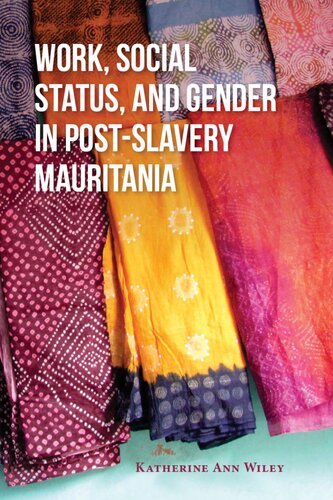

Most ebook files are in PDF format, so you can easily read them using various software such as Foxit Reader or directly on the Google Chrome browser.
Some ebook files are released by publishers in other formats such as .awz, .mobi, .epub, .fb2, etc. You may need to install specific software to read these formats on mobile/PC, such as Calibre.
Please read the tutorial at this link: https://ebookbell.com/faq
We offer FREE conversion to the popular formats you request; however, this may take some time. Therefore, right after payment, please email us, and we will try to provide the service as quickly as possible.
For some exceptional file formats or broken links (if any), please refrain from opening any disputes. Instead, email us first, and we will try to assist within a maximum of 6 hours.
EbookBell Team

0.0
0 reviewsAlthough slavery was legally abolished in 1981 in Mauritania, its legacy lives on in the political, economic, and social discrimination against ex-slaves and their descendants. Katherine Ann Wiley examines the shifting roles of Muslim arāīn (ex-slaves and their descendants) women, who provide financial support for their families. Wiley uses economic activity as a lens to examine what makes suitable work for women, their trade practices, and how they understand and assert their social positions, social worth, and personal value in their everyday lives. She finds that while genealogy and social hierarchy contributed to status in the past, women today believe that attributes such as wealth, respect, and distance from slavery help to establish social capital. Wiley shows how the legacy of slavery continues to constrain some women even while many of them draw on neoliberal values to connect through kinship, friendship, and professional associations. This powerful ethnography challenges stereotypical views of Muslim women and demonstrates how they work together to navigate social inequality and bring about social change.